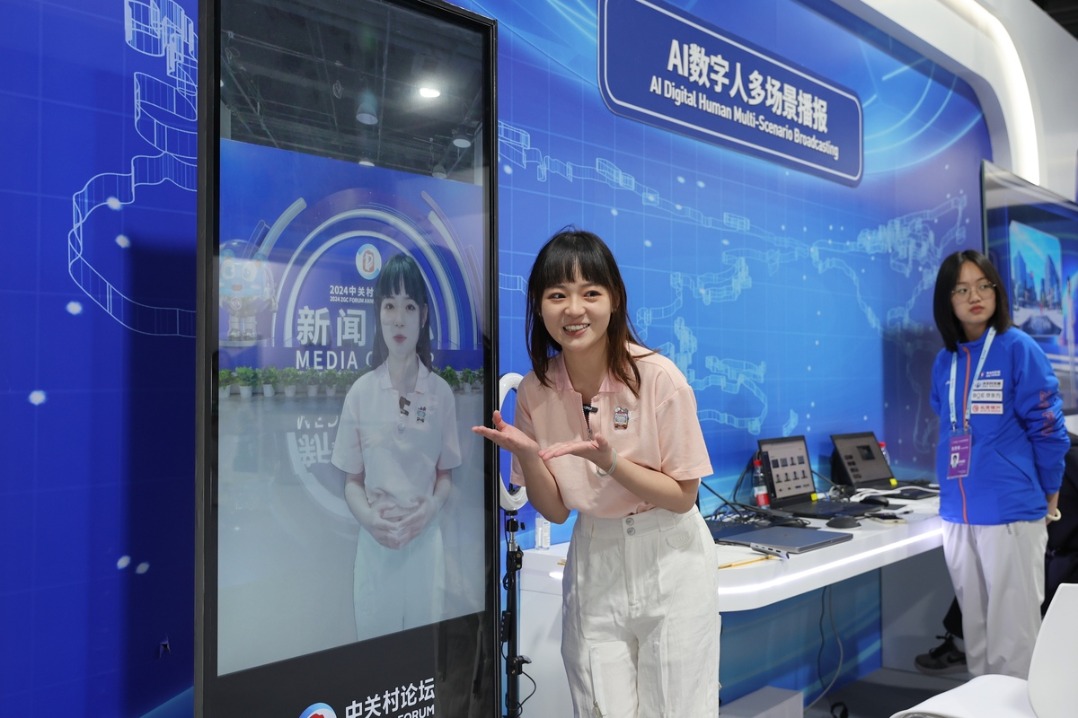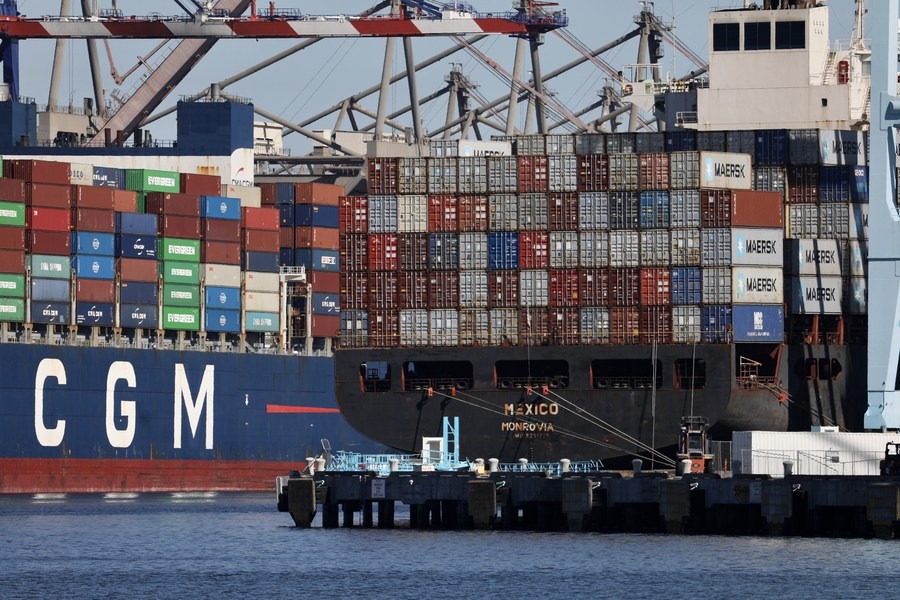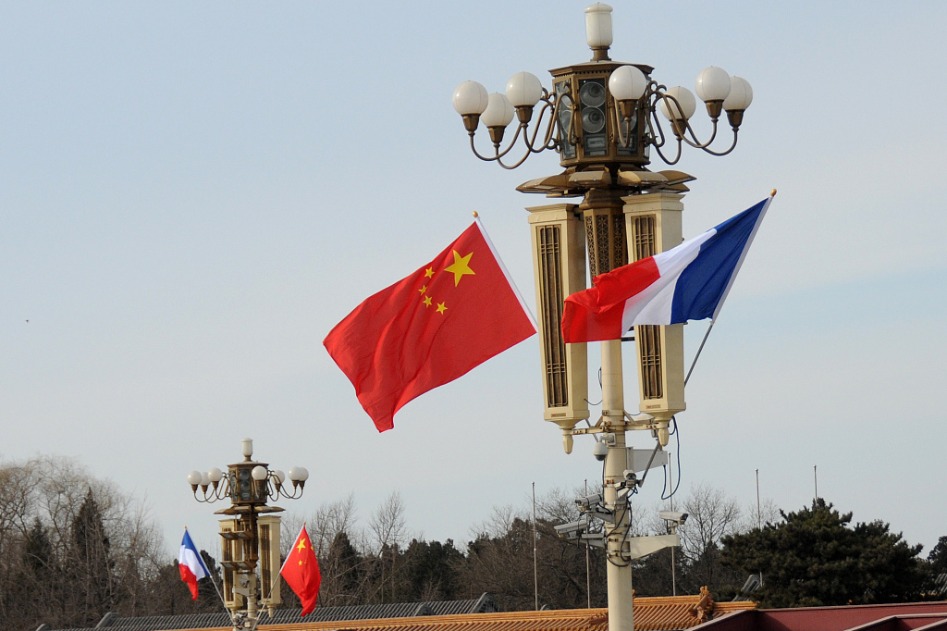Making matters worse


EU de-risking poses greater risks than those it supposedly aims to mitigate
European Commission President Ursula von der Leyen visited China and attended the China-EU Summit in early December. Recently, she stated that the European Union's future is closely tied to its relations with China, expressing the EU's reluctance to "decouple" from China but emphasizing the need to reduce risks. Since Von der Leyen first introduced the concept of de-risking toward China during the World Economic Forum annual meeting in early 2023, de-risking has become a key term in the EU's China policy. The proposals related to the EU's de-risking toward China are gradually being refined and implemented, and they are expected to have profound implications for China-EU relations.
EU and US leaders have responded positively to the concept of de-risking, and the EU and other Western countries are strengthening coordination and pushing for policy implementation.
In May 2023, a joint statement was issued at the G7 summit in Hiroshima, emphasizing the need for de-risking to enhance economic resilience and diversification to reduce excessive dependence on China for critical supply chains. In June 2023, the European Commission introduced the European Economic Security Strategy, outlining four major economic security risks for the EU and proposing 11 specific measures to promote EU economic security. Although the strategy does not explicitly mention China, it is evident that it addresses concerns related to China.
The EU's de-risking toward China deliberately maintains ambiguity in its content, emphasizing the reduction of dependence and even partial "decoupling" in certain areas. Core measures include enhancing technological capabilities, foreign investment scrutiny, and export and external investment controls. The EU's proposal for de-risking toward China is influenced by factors such as intensified geopolitical anxiety, rising economic protectionism, emphasis on a unified stance toward China, negative perceptions of China, and strengthened EU-US coordination.
The EU is now moving forward with the implementation of the de-risking strategy toward China, and this strategy may expand in scope, areas and intensity in the future, potentially triggering chain reactions and spillover effects. It is unlikely that the EU will alter its general direction of reducing its dependence on key raw materials from China and promoting the diversification of its external trade and investments. De-risking toward China is also expected to gradually impact China-EU scientific and academic exchanges, as well as cultural exchanges.
In the European Economic Security Strategy, the EU has designed a toolbox that includes a series of policy regulations, laws and action plans. To form policy synergy, the EU plans to incorporate the Critical Raw Materials Act and European Chips Act into the framework of this strategy. Going forward, the EU's toolbox for maintaining economic security is expected to become more systematic and specific, with greater coordination. The German Institute for International and Security Affairs has proposed that the EU should use export controls in conjunction with other tools such as investment security reviews to achieve greater de-risking efficacy. While the range of laws and executive orders enacted by the EU is limited, the restrictive requirements within them may artificially raise the cost of cooperation for both China and the EU.
The EU's de-risking drive is also expected to enable greater coordination with the United States' policy toward China, making their goals more focused and aligned and their actions more unified. Under the pretext of de-risking, the West may intensify its drive for decoupling from China more precisely, in areas such as semiconductors, artificial intelligence, new energy and critical raw materials. The strengthening of Western economic policy coordination against China through mechanisms such as the US-Japan-Republic of Korea Economic Security Dialogue and the Coordination Platform on Economic Coercion of the G7 is also intended to accelerate the establishment of an economic security alliance in the name of promoting collective economic security. The EU and the US may also spread the Notion of a China risk in multilateral forums such as the G20 and the United Nations, stigmatizing China's economic policies and behavior. This could also involve rallying support from Global South countries such as India and Brazil, encouraging them to reduce their dependence on China in the technological sector.
The competition between China and the US is now intensifying, and the Ukraine crisis has profoundly transformed the EU's geopolitical understanding.
The bloc has increased its security dependence on the US, with security considerations now dominating its economic strategy. These factors have determined the EU's overall framework for China relations, which is based on de-risking. Its policy proposals are being gradually implemented in some areas. Going forward, the EU is expected to continue refining and expanding the content and scope of de-risking, shaping it as the main axis of its future China policy. However, in the medium to long term, the trajectory of the EU's de-risking drive toward China remains uncertain, and its comprehensive implementation may prove challenging.
First, there are still differences within the EU on how to put in place the de-risking drive, and the bloc has not formed a complete consensus. Member states have varying interests, and there are differences in how they prioritize issues related to China, such as economic interdependence, soft power, political ideologies and values.
Second, the EU business community is generally concerned that de-risking may harm its interests in China and it is tending to continue strengthening cooperation with China. The business community believes that restricting economic and trade relations with China under the guise of de-risking goes against market principles, causing significant disruption and hindrance to normal business operations. EU businesses, especially those with significant investments in China, are concerned that de-risking will give rise to trade protectionism toward China. It could lead to substantial losses and mean they miss out on opportunities in the Chinese market, which would be detrimental to their long-term development.
Third, the attitudes of EU citizens toward de-risking vary, with the majority of the population unwilling to engage in the de-risking drive toward China. Due to differences in economic ties, trade structures and perceptions of China, EU citizens have divergent opinions on de-risking. A report released by the European Council on Foreign Relations in June showed that the majority of EU citizens do not see China as a challenge or a threat to EU interests. In many aspects, they support French President Emmanuel Macron's strategy of engagement with China rather than the tough stance advocated by EU Commission President von der Leyen. There is also less support for US policy, which emphasizes ideological confrontation with China. Forty-three percent of respondents consider China a necessary partner for the EU, and only 22 percent of EU citizens believe that the risks of China-EU economic and trade relations outweigh the benefits.
The long-term pattern of mutual interests between China and the EU in various fields suggests that the risks caused by de-risking will be much greater than the so-called risks it aims to mitigate. Regardless of how international circumstances change, China's determination to pursue high-level openness and share development opportunities with the world will remain unchanged. China-EU economic and trade cooperation has strong resilience, and China and the EU should strengthen dialogue and cooperation to inject positive energy into maintaining an open world economy and multilateralism going forward. The healthy development of China-EU relations will contribute to the prosperity, stability, and progress of the world, making positive contributions to global peace and human progress.
Gu Su is a lecturer of the School of German Studies at Beijing Foreign Studies University. Xiong Wei is a professor with the Department of Diplomacy at China Foreign Affairs University. The authors contributed this article to China Watch, a think tank powered by China Daily.
The views do not necessarily reflect those of China Daily.
Contact the editor at editor@chinawatch.cn

































